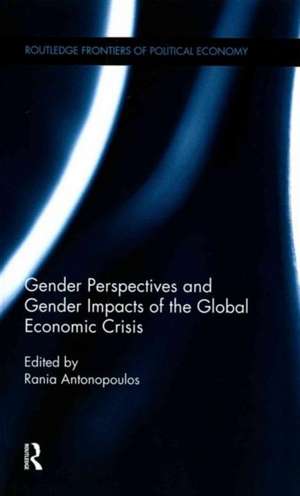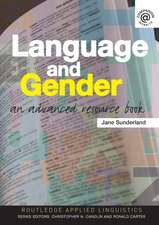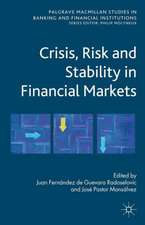Gender Perspectives and Gender Impacts of the Global Economic Crisis: Routledge Frontiers of Political Economy
Editat de Rania Antonopoulosen Limba Engleză Paperback – 9 mai 2016
Looking at the economy through a gender lens, the contributors investigate the antecedents and consequences of the ongoing crisis as well as the recovery policies adopted in selected countries. There are case studies devoted to Latin America, transition economies, China, India, South Africa, Turkey, and the USA. Topics examined include unemployment, the job-creation potential of fiscal expansion, the behavioral response of individuals whose households have experienced loss of income, social protection initiatives, food security and the environment, shedding of jobs in export-led sectors, and lessons learned thus far. From these timely contributions, students, scholars, and policymakers are certain to better understand the theoretical and empirical linkages between gender equality and macroeconomic policy in times of crisis.
| Toate formatele și edițiile | Preț | Express |
|---|---|---|
| Paperback (1) | 338.33 lei 6-8 săpt. | |
| Taylor & Francis – 9 mai 2016 | 338.33 lei 6-8 săpt. | |
| Hardback (1) | 822.36 lei 6-8 săpt. | |
| Taylor & Francis – 17 dec 2013 | 822.36 lei 6-8 săpt. |
Din seria Routledge Frontiers of Political Economy
-
 Preț: 309.90 lei
Preț: 309.90 lei -
 Preț: 309.79 lei
Preț: 309.79 lei -
 Preț: 316.03 lei
Preț: 316.03 lei -
 Preț: 310.95 lei
Preț: 310.95 lei - 9%
 Preț: 866.82 lei
Preț: 866.82 lei -
 Preț: 309.12 lei
Preț: 309.12 lei -
 Preț: 311.61 lei
Preț: 311.61 lei -
 Preț: 286.99 lei
Preț: 286.99 lei -
 Preț: 327.83 lei
Preț: 327.83 lei -
 Preț: 311.87 lei
Preț: 311.87 lei -
 Preț: 302.76 lei
Preț: 302.76 lei - 9%
 Preț: 938.48 lei
Preț: 938.48 lei -
 Preț: 152.67 lei
Preț: 152.67 lei -
 Preț: 151.97 lei
Preț: 151.97 lei -
 Preț: 318.54 lei
Preț: 318.54 lei -
 Preț: 317.95 lei
Preț: 317.95 lei -
 Preț: 310.01 lei
Preț: 310.01 lei -
 Preț: 326.49 lei
Preț: 326.49 lei -
 Preț: 155.44 lei
Preț: 155.44 lei -
 Preț: 309.79 lei
Preț: 309.79 lei -
 Preț: 328.76 lei
Preț: 328.76 lei -
 Preț: 281.72 lei
Preț: 281.72 lei -
 Preț: 286.58 lei
Preț: 286.58 lei -
 Preț: 386.12 lei
Preț: 386.12 lei -
 Preț: 353.78 lei
Preț: 353.78 lei -
 Preț: 325.09 lei
Preț: 325.09 lei -
 Preț: 310.55 lei
Preț: 310.55 lei -
 Preț: 387.03 lei
Preț: 387.03 lei -
 Preț: 324.87 lei
Preț: 324.87 lei -
 Preț: 312.86 lei
Preț: 312.86 lei -
 Preț: 374.16 lei
Preț: 374.16 lei -
 Preț: 329.09 lei
Preț: 329.09 lei -
 Preț: 348.22 lei
Preț: 348.22 lei - 28%
 Preț: 1047.06 lei
Preț: 1047.06 lei - 18%
 Preț: 1169.45 lei
Preț: 1169.45 lei - 18%
 Preț: 1555.17 lei
Preț: 1555.17 lei - 18%
 Preț: 1048.43 lei
Preț: 1048.43 lei - 18%
 Preț: 1059.84 lei
Preț: 1059.84 lei - 31%
 Preț: 767.47 lei
Preț: 767.47 lei - 18%
 Preț: 731.92 lei
Preț: 731.92 lei - 28%
 Preț: 822.54 lei
Preț: 822.54 lei - 18%
 Preț: 1796.21 lei
Preț: 1796.21 lei - 29%
 Preț: 1184.91 lei
Preț: 1184.91 lei - 18%
 Preț: 1120.23 lei
Preț: 1120.23 lei - 15%
 Preț: 700.95 lei
Preț: 700.95 lei - 18%
 Preț: 1116.31 lei
Preț: 1116.31 lei - 25%
 Preț: 299.52 lei
Preț: 299.52 lei
Preț: 338.33 lei
Preț vechi: 394.32 lei
-14% Nou
Puncte Express: 507
Preț estimativ în valută:
64.75€ • 70.31$ • 54.39£
64.75€ • 70.31$ • 54.39£
Carte tipărită la comandă
Livrare economică 22 aprilie-06 mai
Preluare comenzi: 021 569.72.76
Specificații
ISBN-13: 9781138674455
ISBN-10: 1138674451
Pagini: 290
Ilustrații: 88
Dimensiuni: 156 x 234 x 19 mm
Greutate: 0.45 kg
Ediția:1
Editura: Taylor & Francis
Colecția Routledge
Seria Routledge Frontiers of Political Economy
Locul publicării:Oxford, United Kingdom
ISBN-10: 1138674451
Pagini: 290
Ilustrații: 88
Dimensiuni: 156 x 234 x 19 mm
Greutate: 0.45 kg
Ediția:1
Editura: Taylor & Francis
Colecția Routledge
Seria Routledge Frontiers of Political Economy
Locul publicării:Oxford, United Kingdom
Public țintă
Postgraduate and UndergraduateCuprins
1. Introduction Rania Antonopoulos 2. Financial Crises and their Gendered Employment Impact: Emerging trends and past experiences Jayati Ghosh 3. Investing in Care in the Midst of a Crisis: A strategy for effective and Equitable Job Creation Rania Antonopoulos, Hijong Kim, Tom Masterson and Ajit Zacharias 4. Addressing the Global Economic Crisis in Mexico, Ecuador and Argentina: Implications for Gender Equality Valeria Esquivel and Corina Rodríguez Enríquez 5. Trade Concentration in India and South Africa during the Global Crisis: Examining gender and skill biases in job loss David Kucera, Leanne Roncolato and Erik von Uexkull 6. Impacts of Financial Crisis and Post Crisis Policies on China: A gendered analysis Yan Liang and Sara Hsu 7. Has India Learned Any Lessons from the Global Crisis? The case of a less well-known but most globalized industry from a gender perspective Indira Hirway 8. The Economic Crisis of 2008 and the Added Worker Effect in Transition Countries Tamar Khitarishvili 9. Economic Crisis and the Added Worker Effect in the Turkish Labor Market Serkan Değirmenci and İpek İlkkaracan 10. Agricultural Innovation for Food Security and Environmental Sustainability: Why a gender perspective? Diana Alarcón and Christina Bodouroglou
Notă biografică
Rania Antonopoulos is Senior Scholar and Director of the Gender Equality and the Economy program area of the Levy Economics Institute of Bard College, USA and co-director of the Global Network on Gender, Macroeconomics and International Economics (GEM-IWG).
Descriere
This volume, from an international set of contributors, argues that gender-differentiated economic roles and responsibilities within households and markets can potentially influence the ways in which men and women are affected in times of economic crisis.




















